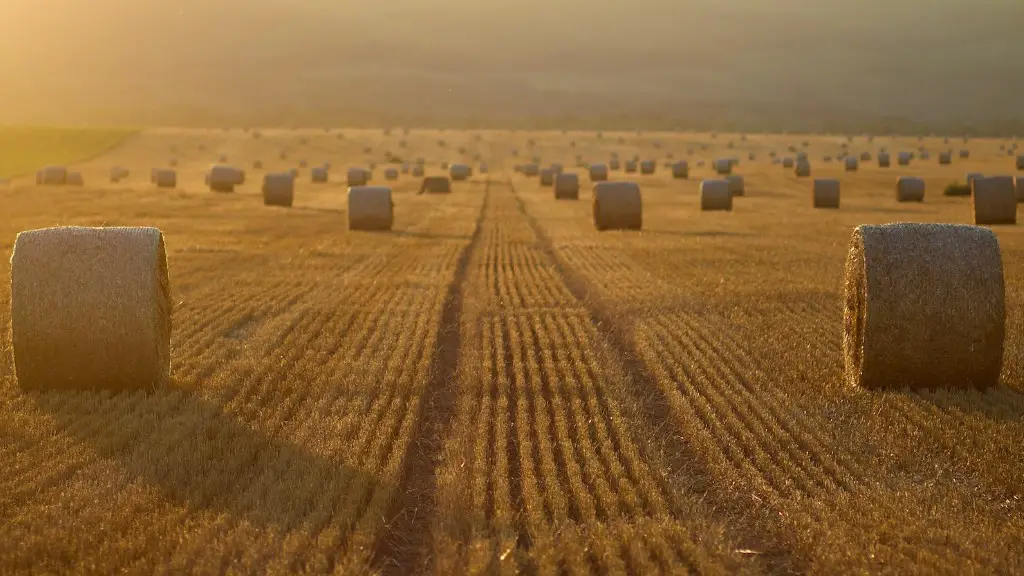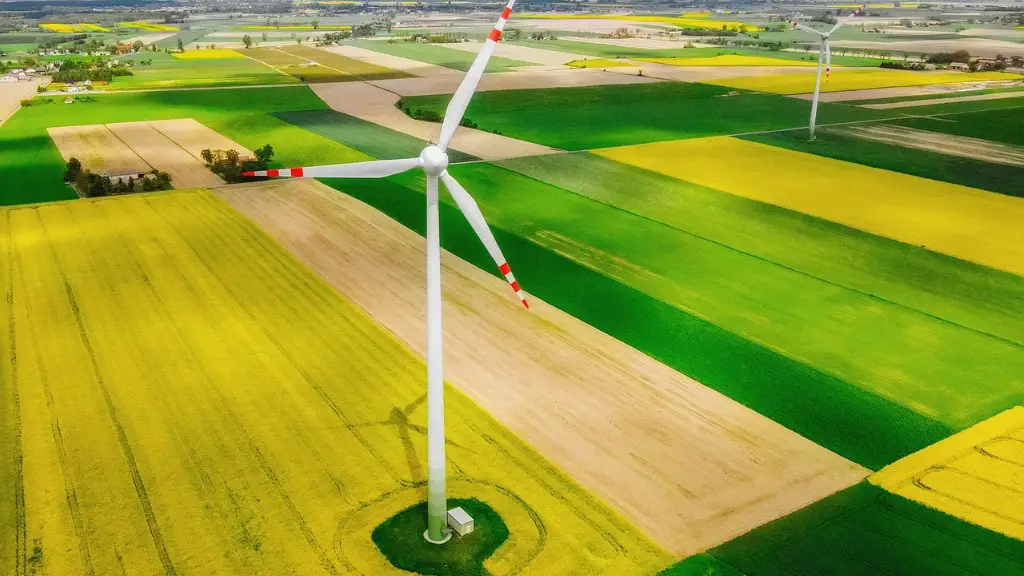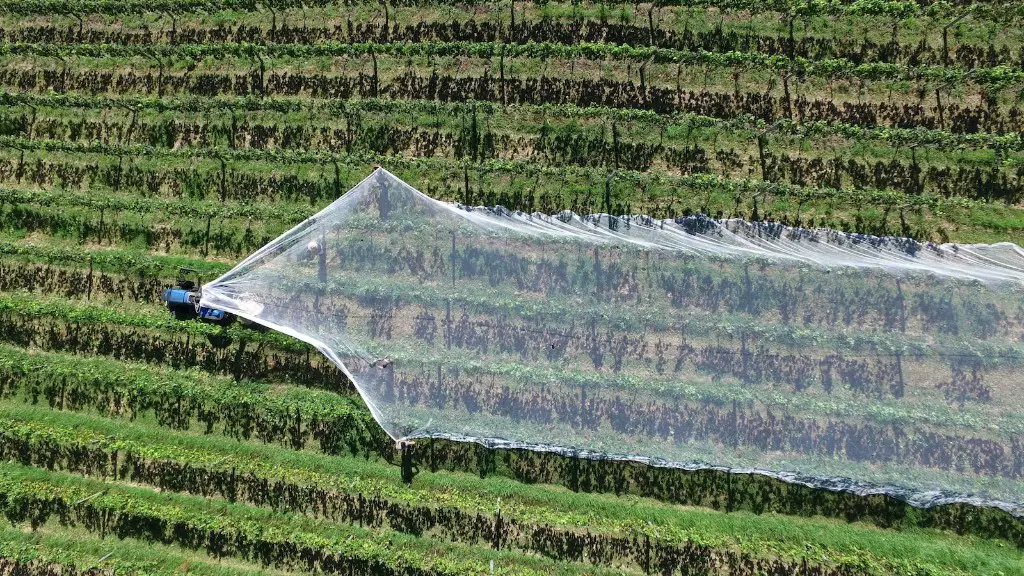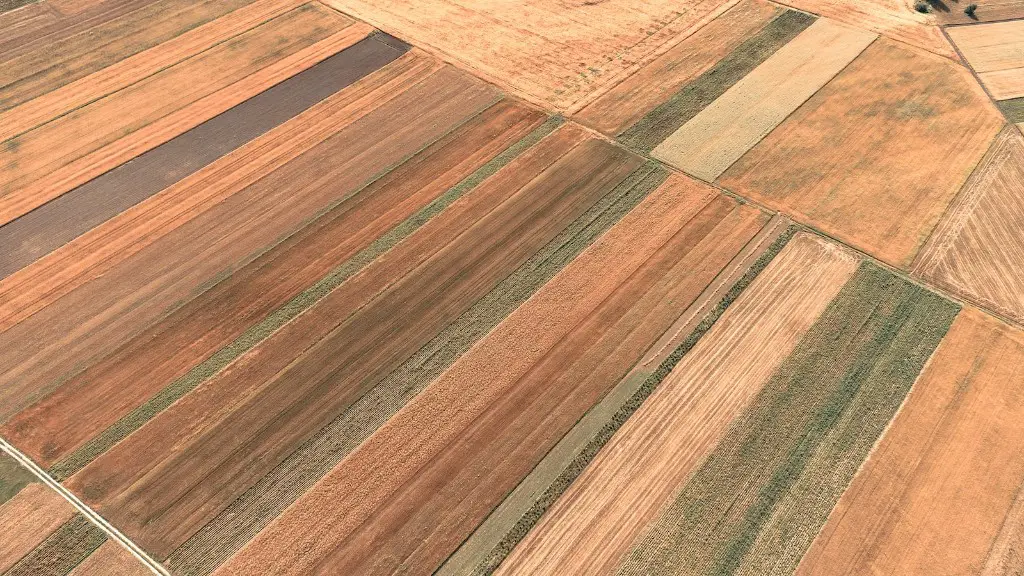Agriculture is the main source of employment for people in many developing countries. It provides them with a way to make a living and support their families. Agriculture is also an important source of food for these countries.
Agriculture is a critical sector of the economy and provides employment for a large number of people. It is estimated that around 60% of the world’s workforce is employed in agriculture, with most of them being small-scale farmers. Agriculture not only provides food and other essential products but also helps to support other industries. For example, the agricultural sector provides raw materials for the manufacturing and textile industries. It also helps to create employment opportunities in the transport and marketing of agricultural products.
How does agriculture affect employment?
The agricultural and food sectors play a vital role in the US economy, providing 105 percent of total employment. In 2021, 211 million full- and part-time jobs were related to these industries. The sector is a major contributor to GDP, with the agricultural sector alone accounting for $1.06 trillion in output in 2020. The sector is also a major exporter, with agricultural exports totaling $139 billion in 2020. The US agricultural and food sectors are expected to continue to grow in the coming years, providing even more jobs and economic opportunities for Americans.
A career in agriculture can be very rewarding. Here are 10 reasons why:
1. You’ll make a difference: Agriculture is vital to the world’s economy and food security. By choosing a career in agriculture, you’ll be playing a role in ensuring that everyone has access to affordable, nutritious food.
2. There’s a shortage of workers in the agriculture industry: The agriculture industry is facing a severe labor shortage. This means that there are plenty of job opportunities available for those with the right skills and qualifications.
3. Agriculture is everywhere: Agriculture is one of the oldest and most widespread industries in the world. It’s present in every country, making it a great option for those looking for an international career.
4. It’s a growing industry: The global population is expected to reach 9 billion by 2050. This will put immense pressure on the world’s food supply, making agriculture an even more important industry.
5. Technology is changing the agriculture industry: Agriculture is becoming increasingly reliant on technology. From GPS-guided tractors to drone-assisted crop mapping, there are plenty of opportunities for those with a background in technology to make a difference in the agriculture industry.
6. You can join the next generation of
How does agriculture benefit the economy
Agriculture is an important driver of economic development in the United States. The sector contributes to the overall US gross domestic product (GDP) through farm production, forestry, fishing activities, textile mills and products, apparel and food and beverage sales, and service and manufacturing.
Indirectly, agriculture also supports other sectors of the economy, such as transportation, energy, and construction. For example, the farming of corn and soybeans requires significant investment in transportation infrastructure to move the crops to market. Similarly, the production of biofuels from crops such as corn is a key driver of demand for the construction of new processing facilities.
In addition to its direct and indirect economic impacts, agriculture also plays a critical role in supporting social and environmental objectives. For example, agriculture can help to ensure food security, protect watersheds and biodiversity, and provide opportunities for rural development.
The average level of agricultural employment for 2021 was 838 000, marginally higher than the 829 000 in 2020. The total number of farm workers increased by 38% during 2021. This is due to the increased demand for food and other agricultural products during the pandemic.
Why is agriculture a main source of employment?
The agricultural sector is a major source of employment in the country, providing employment opportunities to about 78% of the total working population. Agriculture is a highly labour-intensive occupation, generating direct and indirect employment opportunities to unskilled, semi-skilled and highly skilled manpower.
Unstable agricultural production can have a ripple effect on the economy as a whole. When agricultural production slows, it first lowers the demand for agricultural labor. This can lead to increased unemployment, as fewer people are needed to work in the agricultural sector. This in turn can lead to lower consumer spending, as people have less money to spend. This can then lead to lower investment as firms see slower growth in the economy.
What are the benefits to being employed?
Benefits are any perks offered to employees in addition to salary. The most common benefits are medical, disability, and life insurance; retirement benefits; paid time off; and fringe benefits. Benefits can be quite valuable.
Employers typically offer benefits to attract and retain employees, as well as to comply with employment laws. The type and amount of benefits offered can vary greatly from one employer to another.
Employees may be required to pay for some benefits, such as health insurance, through payroll deductions. Others, such as vacation time, may be provided at no cost to the employee.
Benefits can be an important part of an employee’s total compensation package. When considering a job offer, it is important to weigh the value of the benefits being offered in addition to the salary.
An agricultural worker is someone who works in: farming and rearing animals growing produce including non-edible crops like bulbs, plants and flowers forestry, market gardens and nurseries maintaining meadow or pasture land, woodlands and reed beds.
What are 3 benefits of agriculture
Agriculture is the backbone of human survival. The three basic needs for human beings are food, shelter, and clothing, and all of them are dependent on agriculture for their production. Crops for food, silk for cloth, and wood for shelter are all raw materials that come from agriculture. Agriculture is not only important for human beings, but for all animals and plants as well. Without agriculture, there would be no food, and the world would be a very different place.
The agricultural and food sectors are a critical part of the US economy, employing over211 million people in full- and part-time jobs. Direct on-farm employment accounts for about 26 million of these jobs, or 13 percent of US employment. These sectors are expected to continue to grow in the coming years, making them an important part of the US economy.
What are the five benefits of agriculture?
Farming is a great way to live a healthy lifestyle. Not only does it provide a source of income in rural areas, but it also helps develop younger generations. Farm work helps stimulate the mind and body, and it can also help the environment thrive.
There are many careers in agriculture to consider, from agricultural economist to agricultural engineer. If you’re interested in a career in agriculture, there are many options to choose from.
How does agriculture provide income
Farmland yield is the measure of how much produce can be harvested from a piece of farmland. The higher the yield, the more produce that can be harvested and the more money that can be made from agriculture. There are many factors that affect farmland yield, such as the type of crop, the climate, and the farm management practices.
More employment in rural areas can be created by taking the following steps:
Farmers should diversify agriculture and adopt horticulture, animal rearing, organic farming, pisciculture besides farming.
Government should take necessary steps to provide loans to farmers at cheaper rates and from formal sources of credit.
Why workers in agriculture are unemployed?
Disguised unemployment is quite common in the agricultural sector of India, where more people are employed than required. This type of unemployment usually occurs in rural areas, where people are engaged in a job that is not really needed. In such cases, the unemployment is not obvious, but it is there nonetheless.
Employment is essential to poverty alleviation, economic growth, and social welfare. Poor families rely on employment income to support themselves, and employment can revive domestic demand for goods and services, stimulate growth overall, and promote social healing. Displaced persons may be encouraged to return to their homes if employment opportunities are available, and social welfare can improve in the long run if employment is encouraged.
Final Words
Agriculture provides employment in many ways. Farming, ranching, and other agricultural operations provide jobs for workers in the field. Positions are also available in agricultural support industries, such as equipment manufacturing, seed production, and food processing. Many jobs in agriculture require specific skills and knowledge, which can be acquired through specialized training programs. In addition to providing employment opportunities, agriculture also contributes to the economy through the production of food, fiber, and other products.
The agricultural industry is a vital sector of the economy that provides employment for a large percentage of the population. The industry has a wide range of occupations, from farm workers to food scientists, and offers a variety of career options. The agricultural industry is an important source of income and tax revenue, and plays a vital role in food security.





